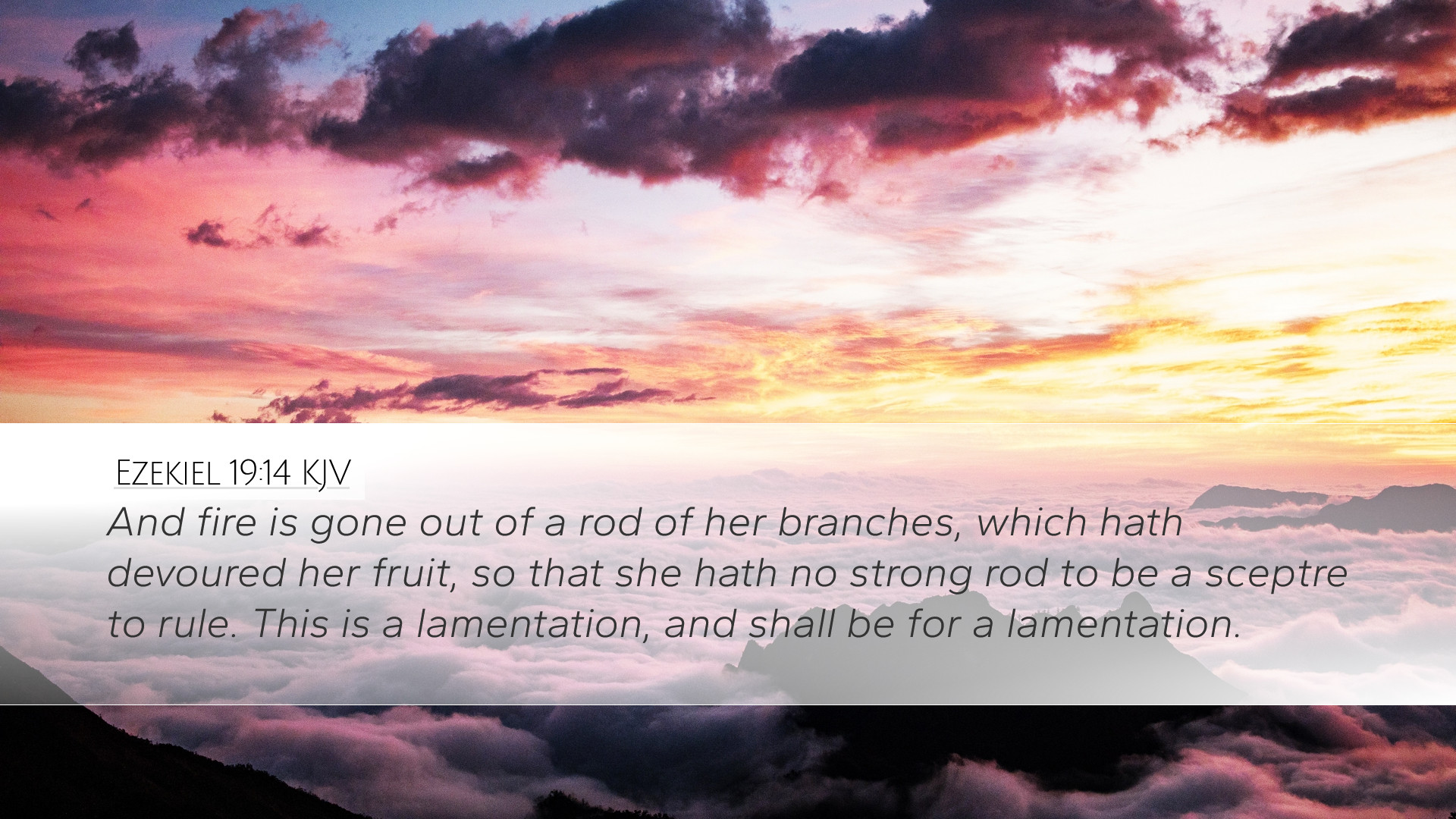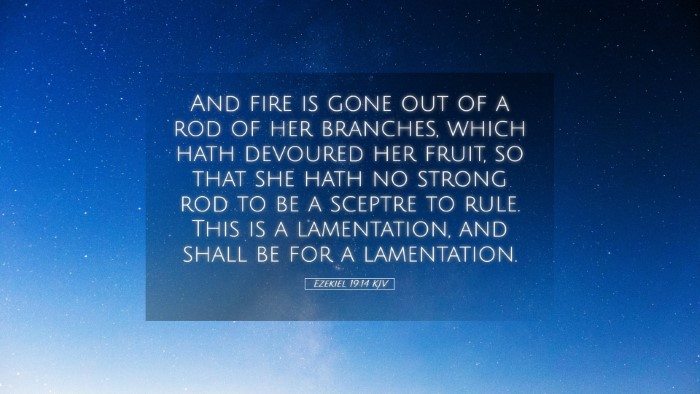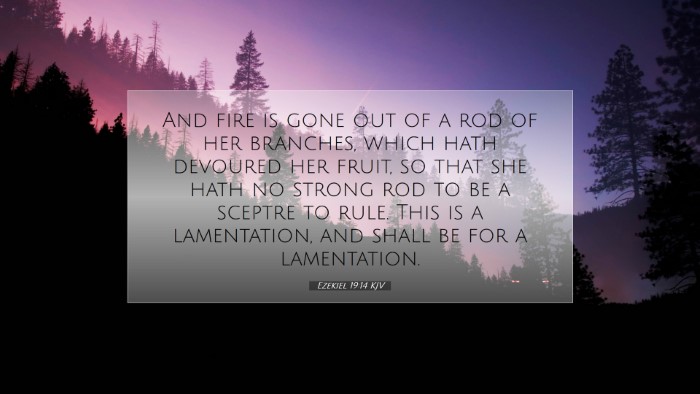Commentary on Ezekiel 19:14
Ezekiel 19:14: "And fire is gone out of a rod of her branches, which hath devoured her fruits, so that she hath no strong rod to be a scepter to rule." This verse serves as a somber reflection on the downfall of Israel, personified through a lamentation for the royal line of Judah. This commentary combines insights from several respected public domain commentaries, providing a rich exploration of the text.
Context of Ezekiel 19
The chapter of Ezekiel presents a lamentation for the princes of Israel, detailing the decline of the former glory of the nation. It highlights how the once flourishing monarchy faced devastation, serving as a poignant reminder of the consequences that follow unfaithfulness to God's covenant.
Outline of the Commentary
- The Royal Analogy
- The Devastation of the Kingdom
- The Consequence of Unfaithfulness
- Lessons for Contemporary Believers
The Royal Analogy
Matthew Henry remarks that Israel is compared to a lioness, symbolizing her noble lineage and strength as a nation. The mention of "rod of her branches" represents the leaders and rulers who stem from the family of David. This imagery emphasizes how the monarchy was once vibrant and powerful but has now become a mere shell of its former self due to disobedience and idolatry.
Albert Barnes elaborates on the significance of the "fire" that has come forth from the branches, indicating a destructive force that has consumed what was once fruitful. The fire symbolizes divine judgment which leaves the nation barren and in ruins, reflective of a larger spiritual decay where God's favor has been withdrawn.
The Devastation of the Kingdom
Continuing with this theme, Adam Clarke highlights the phrase "devoured her fruits," noting that the glory, strength, and fruitful nature of the kingdom have been utterly destroyed. Here, the 'fruits' symbolize the works, prosperity, and blessings once associated with Israel’s leadership. The imagery is stark—a nation that once bore the fruits of prosperity is now left desolate and without strong governance.
Henry notes that the lack of a "strong rod to be a scepter to rule" signifies the total loss of authority and leadership within the kingdom, reflecting the impending futility of maintaining peace or governance. The death of the monarchy renders the nation vulnerable to both internal strife and external threats, essentially leading to its downfall.
The Consequence of Unfaithfulness
This verse encapsulates a broader narrative of the consequences for the people of God when they stray from His path. Each commentator stresses the significance of covenantal faithfulness. Barnes mentions that Israel's historical unfaithfulness to God resulted in divine judgment. The fire that consumes the rod serves as a metaphor for the testing and destruction that comes as a result of rebellion against divine authority.
Clarke emphasizes the importance of the 'rod' as a symbol of authority, implying that without adherence to God's commandments, authority will be forfeited. The ceremonial aspects of kingship in ancient Israel were not merely political but deeply spiritual, intertwining governance with adherence to divine law.
Lessons for Contemporary Believers
The insights gleaned from Ezekiel 19:14 transcend their historical context and speak powerfully to the contemporary church and its leaders. The warning implicit in the verse serves as a critical reminder for today’s believers regarding the consequences of unfaithfulness and the need for spiritual vigilance.
First, church leaders should reflect on their roles as stewards of God's authority. Just as the monarchy is depicted as having fallen to ruin, church leadership must be grounded in accountability, humility, and genuine faithfulness to the Gospel.
Second, this verse calls the church to recognize the spiritual ramifications of collective disobedience. As national Israel experienced judgment, so too can congregations and denominations risk losing their efficacy when they stray from biblical truth.
Finally, it is an encouragement to remain steadfast in righteousness and to cultivate a relationship with God that prioritizes obedience over mere ritual practice. The strength of both individual believers and the church as a whole hinges on this commitment, ensuring they bear good fruits in a world that desperately needs Gospel-centered leadership.
Conclusion
Ezekiel 19:14 serves as a poignant reflection on the tragic decline of Israel, encapsulating themes of judgment, loss, and the dire consequences of unfaithfulness to God. Through the combined insights of public domain commentaries, we see the significance of maintaining covenant integrity and the vital role of leadership grounded in faith. As this verse speaks to the past, it also resonates with contemporary believers, urging vigilance, faithfulness, and a commitment to divine authority.


